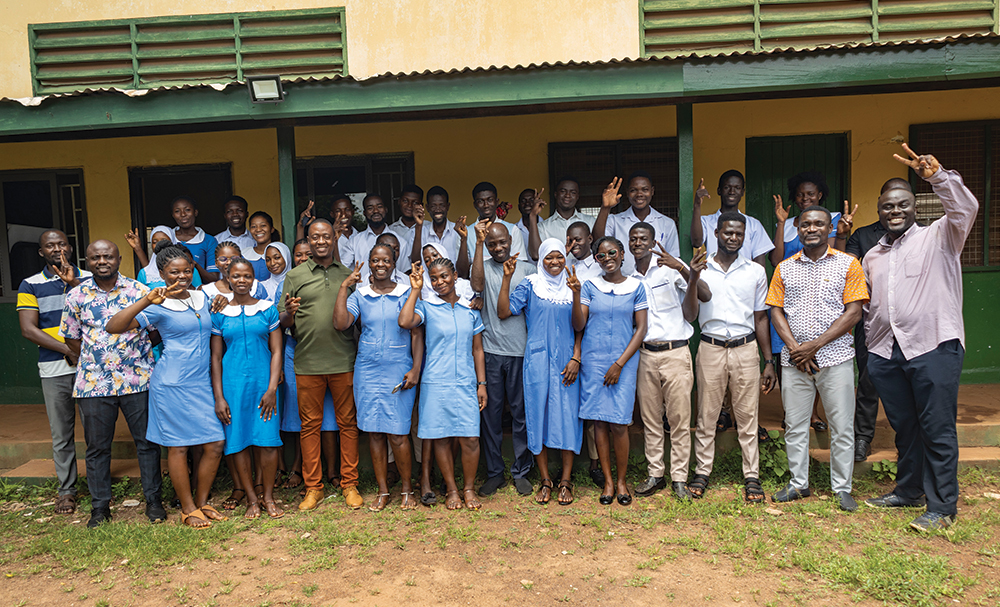The KNUST Nutrition and Sustainable Agri-food Collaborative, under the Mastercard Foundation (Nkabom Collaborative) has expanded its transformative Trainer of Trainers (ToT) programme to benefit 30 students from the Animal Health and Production College in Pong-Tamale.
The 10-day training session, facilitated by tutors who were beneficiaries of the maiden ToT initiative, seeks to deepen agribusiness knowledge and equip participants with practical skills to thrive in the agricultural value chain. The exercise marks a significant step in strengthening the Nkabom Project’s vision of transforming Ghana’s agricultural education into an entrepreneurial and innovation-driven sector.
Earlier this year, the ToT programme brought together 30 agricultural tutors from institutions across the country, training them in agribusiness management, entrepreneurship, and value addition.
Lead facilitator, Mr. Emmanuel Zumanye, explained that the training employs an Active Learning pedagogy, ensuring participants gain hands-on experience throughout the session.
Mr. Zumanye indicated that the students had been taken through sessions on mindset transformation and time management, adding that they would subsequently be introduced to the principles of business planning and guided in the development of comprehensive business plans for their agribusiness ventures.
He noted that the students’ enthusiasm reflects the success of the Nkabom Project’s approach, which emphasises active participation and experiential learning as tools for nurturing innovation and self-reliance.
“The students are fully engaged, motivated, and excited about the training. Many of them are already thinking about applying for grants and starting their own agribusinesses after completion,” he said.
Among the participants, Gertrude Naana Offei expressed optimism about the knowledge gained from the training.
She noted that the training had equipped her with the ability to make impactful decisions, manage her time effectively, and cultivate strong entrepreneurial skills, adding that upon completion, she would emerge as a responsible entrepreneur committed to taking her business seriously.
“This programme has inspired me to develop a business idea using catfish skin to produce facial cream,” she said.
She further expressed confidence that, although she did not yet have a complete plan, the training would provide her with the necessary direction to refine and implement her business idea effectively.
Another participant, Hayford Baidoo Jacob, who is already engaged in rabbit farming, shared how the programme has expanded his perspective on agribusiness.
“This training has taught me not just to rear rabbits professionally but to add value by processing the meat into different products,” he stated.
He further stated that even if he did not secure the grant, he is still confident in his ability to start his own venture and make a meaningful impact within his community.
“I believe this initiative will help us, students in the agric colleges to establish our own agribusinesses right after school and even employ others,” he said.

















